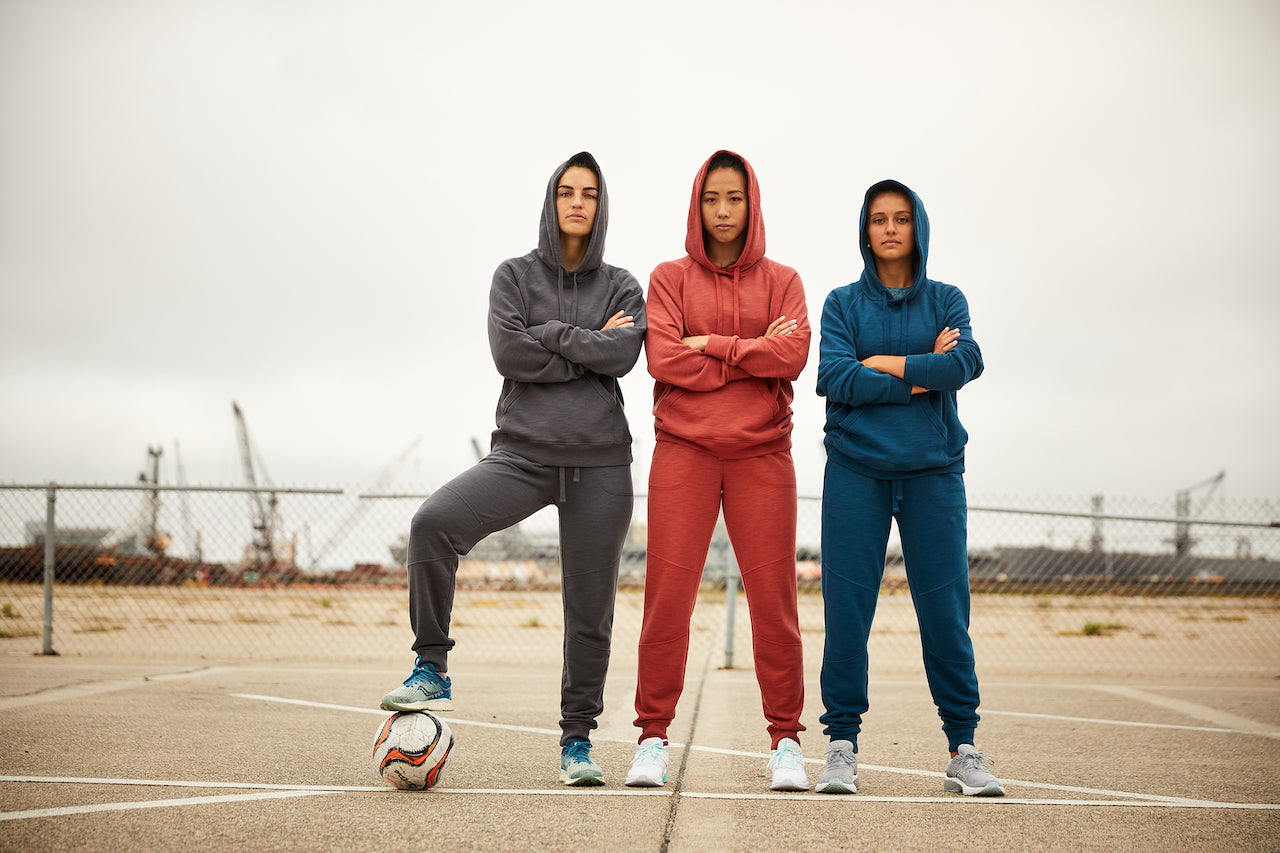How to Balance Your Schedule As a Student Athlete
Wake up, practice. Eat lunch, lift. Lift, go to P.T. P.T, dinner. Dinner, sleep. Repeat.
When you live the life of a student athlete, it’s all-too-common to feel like you don’t have a choice. When nearly every day is planned for you, finding a balance between school, sports, and life can feel like an overwhelming challenge. With fall sports season kicking off, we want to share a few tips on how to make time for friends, hobbies, and (most importantly) yourself when you’re in the thick of it this season. Your mental health is just as important as your physical health; and when you take care of yourself, your game can only get better.
Visualize your schedule.
Plot every practice, training, team hang, and game on a calendar. Writing it all down in a way you can understand will give you the opportunity to mentally prepare for every event, and will even show you where you have gaps in your schedule to relax, hang out with friends or teammates, and study. Imagine picking your class schedule and not having your ideal classes overlap with training...they said it couldn’t be done…
Develop a routine.
Whether that’s listening to the same podcast every morning or creating a night time ritual to de-stress before bed, sticking to a routine can give you a sense of control when you often feel out of control of your schedule. Your days can feel impossibly long, so taking that time for yourself at any point in the day is a great reminder that you are allowed to do something for yourself, not just for the good of the team.
Eat regularly, and eat well.
This one hits home for a lot of female athletes. Eating disorders and body image issues are unfortunately a common theme across all women’s (and even men’s) sports, and the expectations that society puts on female athletes, specifically women of color, to look a certain way creates unnecessary pressure. Fueling your body is an essential part of your progress as an athlete, and learning to eat intuitively and often can help prevent lifelong challenges. Eating well and drinking tons of water is self care, y’all, we promise.
Check out this blog to learn more about how body image expectations predominantly affect WOC in the athlete community.
Ask for help.
If you sprained your ankle, you wouldn’t run on it, would you? Damage to your mental health is an unseen injury, but it deserves the same level of care as a physical injury. Many schools offer mental health services and counseling; however if you don’t have access to those resources, talk to someone around you. Whether it’s a friend, a teammate, a coach, or a professor, there will always be someone who is willing to listen. It’s okay to need help; you’re only human, after all. If Simone Biles can take a step back in the most important competition of her career, so can you.
With that, let’s go into this season (and school year) with a new mindset and a priority for self-care. And trust us, there’s more where this came from. We’re officially naming this season “Feel-good Fall,” so follow along on our mental health advocacy journey by following us on Instagram @goalfive.
If you are a student athlete who is struggling with any invisible injuries, check out the NCAA Mental Health Resources here, or any time at the link in our Instagram bio.




Leave a comment
This site is protected by hCaptcha and the hCaptcha Privacy Policy and Terms of Service apply.